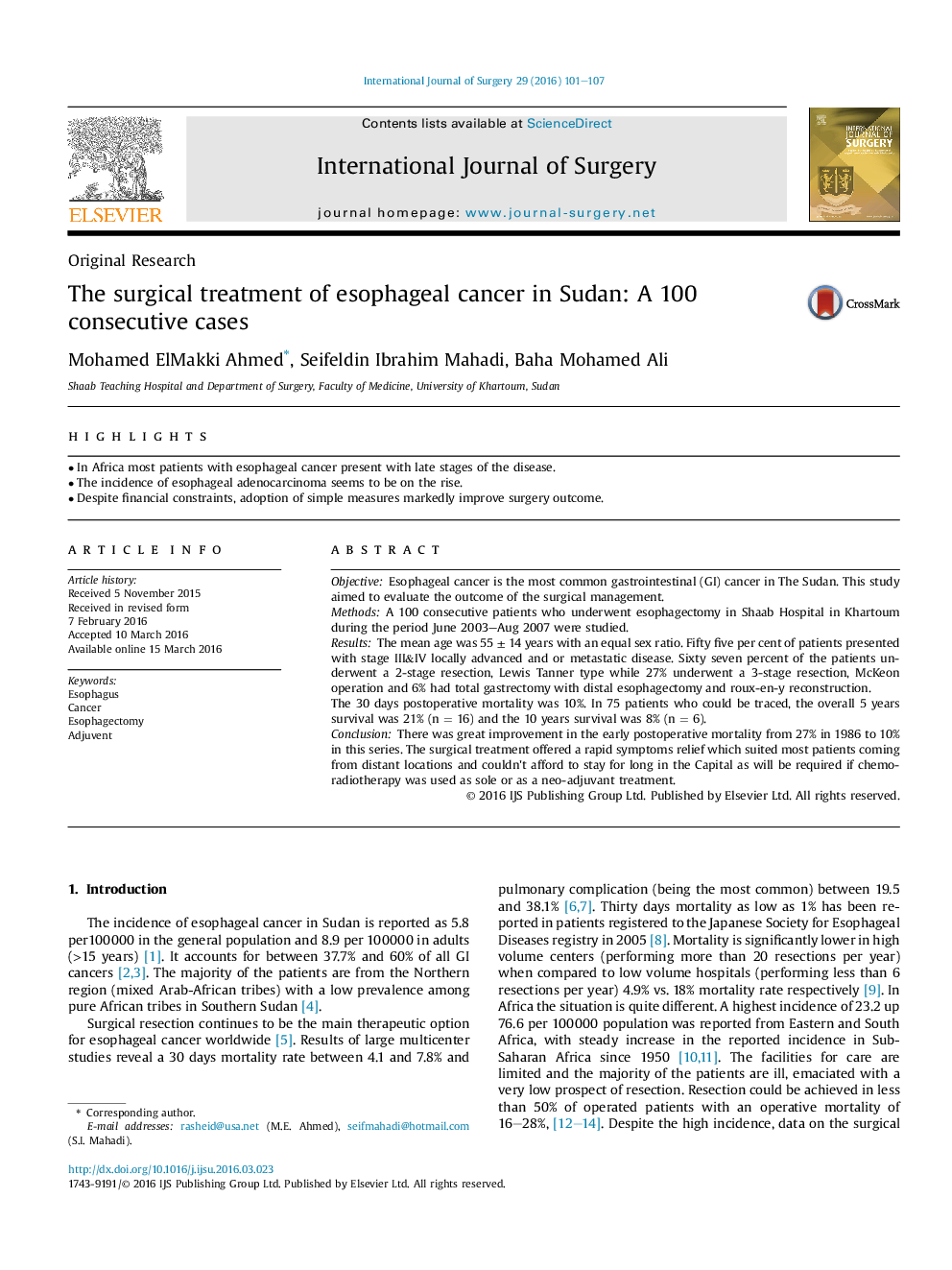| Article ID | Journal | Published Year | Pages | File Type |
|---|---|---|---|---|
| 4285430 | International Journal of Surgery | 2016 | 7 Pages |
•In Africa most patients with esophageal cancer present with late stages of the disease.•The incidence of esophageal adenocarcinoma seems to be on the rise.•Despite financial constraints, adoption of simple measures markedly improve surgery outcome.
ObjectiveEsophageal cancer is the most common gastrointestinal (GI) cancer in The Sudan. This study aimed to evaluate the outcome of the surgical management.MethodsA 100 consecutive patients who underwent esophagectomy in Shaab Hospital in Khartoum during the period June 2003–Aug 2007 were studied.ResultsThe mean age was 55 ± 14 years with an equal sex ratio. Fifty five per cent of patients presented with stage III&IV locally advanced and or metastatic disease. Sixty seven percent of the patients underwent a 2-stage resection, Lewis Tanner type while 27% underwent a 3-stage resection, McKeon operation and 6% had total gastrectomy with distal esophagectomy and roux-en-y reconstruction.The 30 days postoperative mortality was 10%. In 75 patients who could be traced, the overall 5 years survival was 21% (n = 16) and the 10 years survival was 8% (n = 6).ConclusionThere was great improvement in the early postoperative mortality from 27% in 1986 to 10% in this series. The surgical treatment offered a rapid symptoms relief which suited most patients coming from distant locations and couldn't afford to stay for long in the Capital as will be required if chemo-radiotherapy was used as sole or as a neo-adjuvant treatment.
